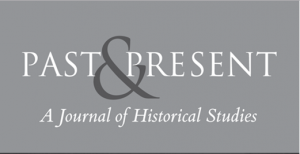by the North American Conference on British Studies editorial team
Introduction
Jonathan Connolly is the recipient of the 2019 Walter D. Love Prize. Connolly’s winning article (for the best entry in British history) was “Indentured Labour Migration and the Meaning of Emancipation: Free Trade, Race, and Labour in British Public Debate, 1838-1860,” Past & Present 238 (February 2018).
In August 2020, he will take up his new position as assistant professor in the Department of History at the University of Illinois at Chicago.
Interview
How did you become interested in this topic?
Early on in graduate school, I began reading about indenture in the South African context, where I was interested broadly in processes of imperial expansion. Like many I think, I was struck by how quickly the indenture system took shape, so soon after abolition. An interest in origins led me to the southern Caribbean and then in particular to Mauritius. As I read more, I became increasingly concerned not only with what indenture ‘was,’ but with how it was represented. Many of my interests and nascent commitments as a historian involved the political culture of imperial rule—attempts to understand and rationalize power. So my earliest question, the question that eventually led to this article, was ‘why did indenture become less controversial over time?’ By extension, ‘how was indenture rationalized, alongside Britain’s commitment to antislavery?’ And, ‘what might debate on indenture tell us about the concept of “emancipation” and what it did and didn’t mean?’
Did you make any particularly important archival findings? Was there a moment when you felt like you had achieved a breakthrough in your research?
I relied mainly on newspapers and other public representations for this project, and many of the individual articles I read are fascinating in their own right, rhetorically and politically. But if there was a sense of ‘breakthrough,’ it came through the gradual realization of a longer-term pattern of change. Seeing the dramatic transformation in The Times’ position on indenture for example, over the course of twenty-odd years. That pattern made many individual claims all the more striking. Meanwhile, teaching also played a significant role. In the midst of the project, I taught a small seminar on antislavery and abolition. Rereading canonical antislavery texts (with students encountering them for the first time, no less) helped emphasize how later representations of indenture subverted antislavery ideals, often radically.
Does your project engage other disciplines? If so, which ones, and how?
I certainly hope so. My earlier training in comparative literature played a role in generating the project and in the close reading of political language more generally. One of the article’s key themes is discursive normalization, which is I think of interest broadly in cultural studies, but also potentially in the social sciences, especially historical sociology. And certainly the article takes inspiration from an interdisciplinary methodological tradition traceable back at least to Said: that is, the use of interpretive methods to uncover how, historically, particular modes of thought have helped justify and enable particular relations of power.
Does your project have any particular relevance to the contemporary—political, social, cultural, etc.?
In large part, the project was an attempt to understand how indenture, in spite of its severities, came to be seen as a natural part of the modern world. If scholarly work on humanitarianism often foregrounds moments of recognition, histories of emancipation may emphasize an inverse trajectory: about the hiding of violence and responsibility. That dynamic is of both historical and contemporary interest. In this case, the logic that emerged in favor of indenture in the 1850s bears a striking resemblance to something that may seem inevitable today: that patterns of mass consumption in parts of the world depend on extreme low-wage labor far away.
What are you working on next? Will you be pursuing related research questions or turning to something completely different?
The article is part of a larger book project, tentatively titled Worthy of Freedom. The focus of the project initially concerned political culture and ideologies of power, as this article attests. But over time, the project grew larger and more diverse methodologically. In addition to the ideology of indenture, the book examines the system’s legal structure and its local and global economic effects. I endeavor to show how the legal category of ‘free labor’ changed over time, and trace a set of private, official debates on the subject, whose trajectory largely mirrors that of the public debates analyzed in the article. Meanwhile, I became fascinated by the ways in which indenture shaped the political economy of emancipation, and by the material relationship between indenture and free trade. I published some of my economic arguments focused on state debt in “Indenture as Compensation: State Funding for Labor Migration in the Era of Emancipation,” Slavery & Abolition 40, no. 3 (2019). A key interest and challenge for the book is interweaving these three levels of analysis.
This interview was originally published on the North American Conference on British Studies (NACBS) blog. Our thanks to NACBS for kindly allowing us to reproduce it.

